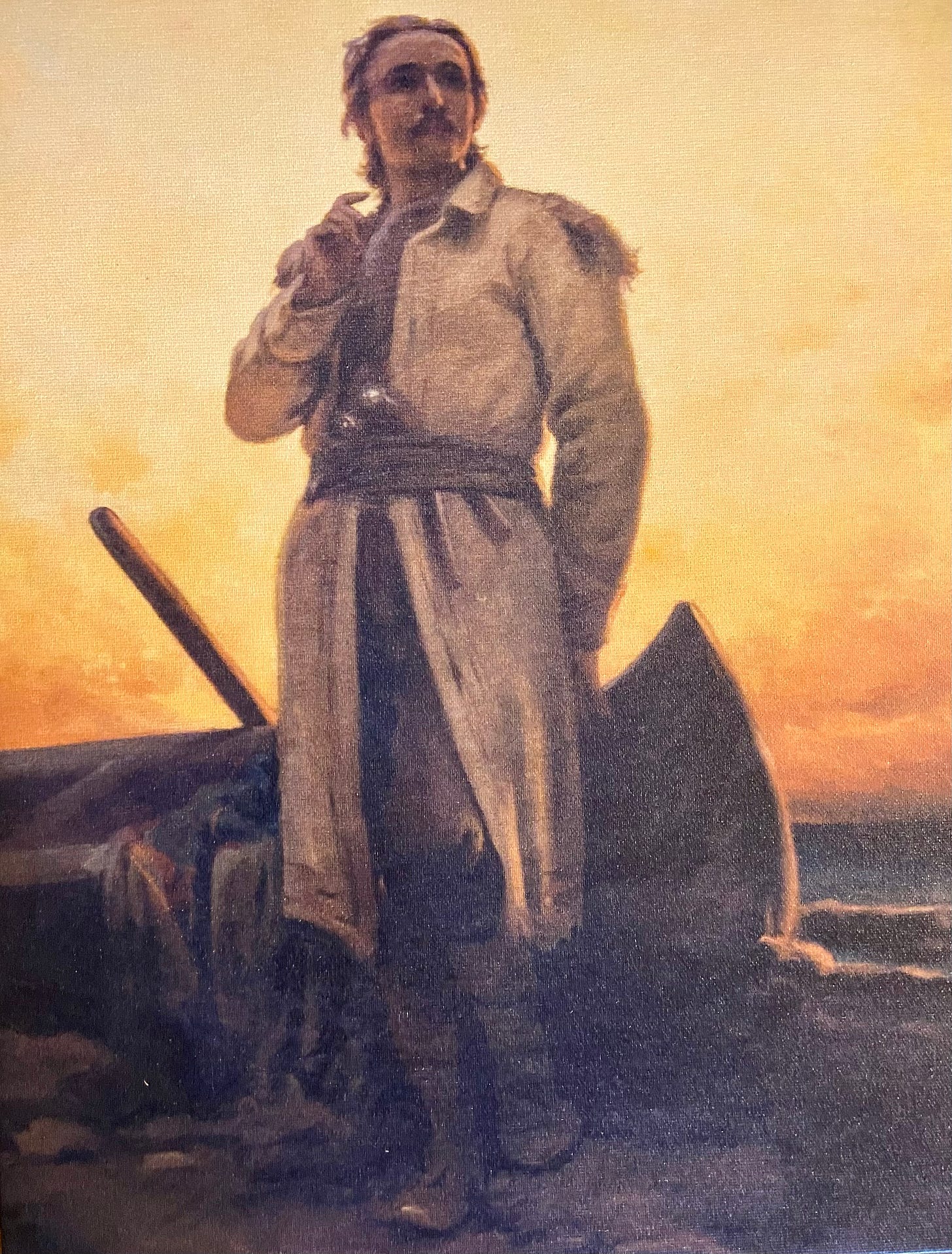This weekend the Beltrami County Historical Society, where I'm president of the board of directors, is putting on a two-day celebration of the bicentennial of the travels of Giacomo Costantino Beltrami, as he searched for the sources of the Mississippi River. Beltrami wrote extensively about his many travels throughout his life. The English translation of his Pilgrimage to America, Leading to the Discovery of the Sources of the Mississippi and Bloody River is over five hundred pages in length. You can find a free copy in the Internet Archive (archive.org) and I’ll share a couple of passages. Beltrami was a bold traveler who was not afraid to pursue his goal on his own when he could not find native guides to lead him. Rather than worrying or feeling abandoned, he described a sense of freedom, telling himself “You have experienced complete solitude, you have tasted genuine independence, you will from this time never enjoy them more. The independence and solitude represented in books or to be found among civilized nations are vain and chimerical.” He continued that he “at the moment fully comprehended why the Indians consider themselves happier than cultivated nations, and far superior to them.” (388-9)
Although Beltrami did not discover the source of the Mississippi at Lake Itasca, he visited several of the lakes it passes through, including Lake Bemidji. His excitement, paddling on the tiny stream that would become the “Father of Rivers” in its 2340-mile journey to the sea is a feeling I have shared. Beltrami wrote, “I find it impossible to become weary of examining and admiring the least objects of attention furnished by this scene. The majestic river, which embraces a world in its immense course and speaks in thunder in its cataracts, is at these its sources nothing but a timid Naiad, stealing cautiously through the rushes and briars that obstruct its progress. The famous Mississippi, whose course is said to be twelve hundred leagues and which bears navies on its bosom and steam-boats superior in size to frigates, is at its source merely a petty stream of crystalline water, concealing itself among reeds and wild rice. I could not but be struck with the valuable lesson here furnished to haughty upstarts, or help recurring in imagination to the slave in antiquity who whispered in the conqueror’s ear, “Respice post te et hominem esse memento” (a quote from Tertullian that means “Look behind you! Remember that you are but a man.” It appears immediately before the second-century Carthaginian author's most famous line, “Memento mori”. 417)
(Summer 2022 tubing the Mississippi with family)
I have enjoyed welcoming five members of the Beltrami family from Torino, Italy and watching them experience some of the places that so excited their famous ancestor. I hope this celebration will help us all recover a bit of the fascination and joy Giacomo felt traveling in northern Minnesota, in the county that now bears his name, as well as a bit of the humility and equanimity it inspired in him.




